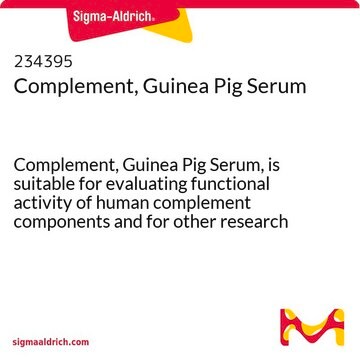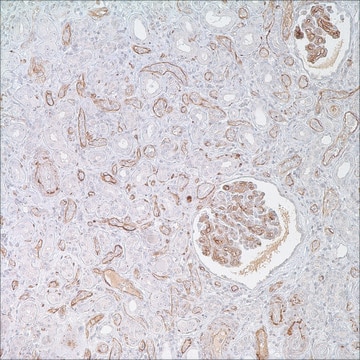244R-1
DOG1 (SP31) Rabbit Monoclonal Antibody
About This Item
Javasolt termékek
biológiai forrás
rabbit
Minőségi szint
100
500
konjugátum
unconjugated
antitest forma
culture supernatant
antitest terméktípus
primary antibodies
klón
SP31, monoclonal
leírás
For In Vitro Diagnostic Use in Select Regions (See Chart)
Forma
buffered aqueous solution
faj reaktivitás
human
kiszerelés
vial of 0.1 mL concentrate (244R-14)
vial of 0.5 mL concentrate (244R-15)
bottle of 1.0 mL predilute (244R-17)
vial of 1.0 mL concentrate (244R-16)
bottle of 7.0 mL predilute (244R-18)
gyártó/kereskedő neve
Cell Marque™
technika/technikák
immunohistochemistry (formalin-fixed, paraffin-embedded sections): 1:100-1:500
izotípus
IgG
szabályozó
GIST
kiszállítva
wet ice
tárolási hőmérséklet
2-8°C
vizualizáció
cytoplasmic, membranous
Géninformáció
human ... ANO1(55107)
Általános leírás
Minőség
 IVD |  IVD |  IVD |  RUO |
Kapcsolódás
Fizikai forma
Elkészítési megjegyzés
Egyéb megjegyzések
Jogi információk
Nem találja a megfelelő terméket?
Próbálja ki a Termékválasztó eszköz. eszközt
Tárolási osztály kódja
12 - Non Combustible Liquids
WGK
WGK 2
Lobbanási pont (F)
Not applicable
Lobbanási pont (C)
Not applicable
Válasszon a legfrissebb verziók közül:
Analitikai tanúsítványok (COA)
Nem találja a megfelelő verziót?
Ha egy adott verzióra van szüksége, a tétel- vagy cikkszám alapján rákereshet egy adott tanúsítványra.
Már rendelkezik ezzel a termékkel?
Az Ön által nemrégiben megvásárolt termékekre vonatkozó dokumentumokat a Dokumentumtárban találja.
Cikkek
Colorectal cancer is the third most common cancer in both men and women. An estimated 136,000 cases of colorectal cancer are expected to occur in 2016.
Tudóscsoportunk valamennyi kutatási területen rendelkezik tapasztalattal, beleértve az élettudományt, az anyagtudományt, a kémiai szintézist, a kromatográfiát, az analitikát és még sok más területet.
Lépjen kapcsolatba a szaktanácsadással








